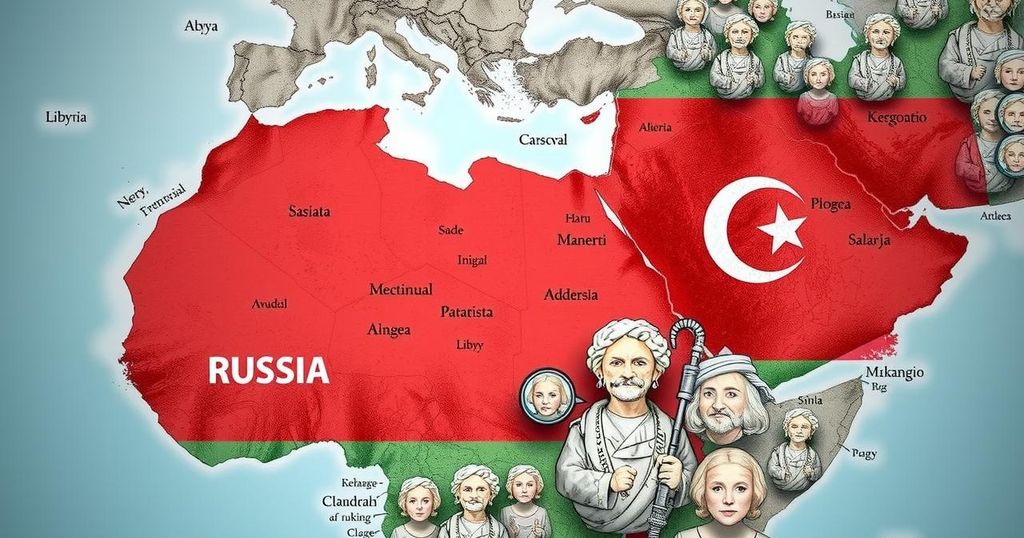World news
AFP, AFRICA, AHMED AL - SHARAA, ALL, ASIA, BASHAR AL - ASSAD, CENTRAL AFRICAN REPUBLIC, EUROPE/ASIA, GOVERNMENT OF NATIONAL UNITY, HARCHAOUI, INTERNATIONAL RELATIONS, JA, KHALIFA HAFTAR, LIBYA, MILITARY, MOROCCO, RUSI, RUSI THINK TANK, RUSSIA, SAHEL, SANCTIONS, SYRIA, WAR
Fatima Alavi
0 Comments
Russia Shifts Focus to Libya as Strategic Hub Amid Syrian Instability
The fall of Assad in Syria has prompted Russia to refocus its strategic interests towards Libya, where it supports Haftar against the Tripoli government. The transfer of military assets from Syria to Libya underscores a move to preserve Russian influence in Africa amid geopolitical challenges, while also navigating complex local dynamics involving multiple external actors.
The recent upheaval in Syria following the ousting of Bashar al-Assad has compelled Russia to reassess its strategic foothold in the region, with Libya emerging as a potential replacement for its influence in Syria. Russia has solidified its presence in Libya through military support to Khalifa Haftar, a field marshal opposed to the UN-recognized Government of National Unity in Tripoli. As Russia seeks to maintain its operational capabilities across Africa, the Kremlin is facilitating military logistics and troop movements to this North African nation, marking a significant pivot in its approach to power dynamics.
Russia has historically leveraged its military bases in Syria to conduct operations across the Mediterranean and parts of Africa. However, with Assad’s regime now in flux, the Kremlin is concerned about the potential loss of its strategic advantage and is consequently shifting its focus towards securing influence in Libya. This region serves as a critical point of contention for various international players, suggesting a complex geopolitical landscape that Russia must navigate carefully.
In conclusion, as Russia pivots towards Libya amidst the instability in Syria, it aims to safeguard its interests and presence in Africa. The shift indicates not only a quest for continuity in its foreign strategy but also a complex interplay of regional power dynamics involving other countries. Maintaining an effective foothold in Libya requires Russia to overcome significant challenges, including rival powers and the inherent difficulties of operating within a more open and scrutinized political environment than Syria provided.
Original Source: www.france24.com




Post Comment